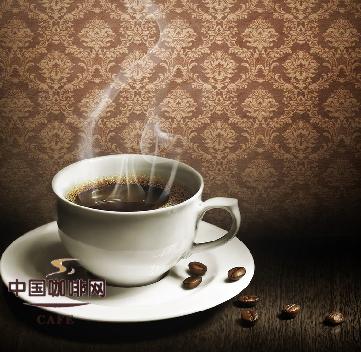The history of coffee development Coffee is spreading and evolving with the times.

Some operators integrate Chinese elements into the operation of cafes. I looked at some of the photos on the Internet and found that the cafe had been moved into a house similar to a courtyard house, which also used a lot of ancient Chinese furniture. The overall feeling is naturally antique, rich and elegant; however, only that, can it present the artistic conception or connotation of a Chinese-style cafe? Somehow, I always felt as if I had lost some charm.
Before we talk about Chinese cafes, we have to briefly discuss the culture of cafes. About what is cafe culture? But there are different opinions, but there is no consensus! Some people think that the smoke is an indispensable part of the cafe culture, while others think that the colorful salon activities can highlight the humanities of the cafe; even, the cafe culture is imported, and the view that we can only simply copy or imitate has long been so deeply rooted in the hearts of the people that as long as you type the key word "cafe" on the Internet, you can search for all kinds of cynicism about cafe lovers. Such as: install X, install petty bourgeoisie, … Wait.
When it comes to cafe culture, the first thing that comes to mind is the rigour of England, if not the romance of Paris, the passion of Rome, the leisure of Vienna. However, if we are not forgetful, we should remember that cafe culture did not actually originate in Europe. The first coffee shop in Europe began with the war between the Ottoman Empire and the allied forces of Central Europe in 1683. After the war, the Turks left many bags of coffee beans in a hasty retreat, which led to the birth of the first coffee shop in Vienna. Therefore, coffee or coffee shop culture is also imported to Europe, but why do we always think of Europe rather than the Middle East when we talk about coffee shop culture nowadays? Thus it can be seen that the decision on who can represent the cafe culture lies not in where it originated, but in who can make it more colorful.
Can cafe culture be better passed on or even brought into play in China? I am not sure about this; however, I believe that cafe culture in China should and must have its own style. In fact, in real life, cafes in China already have a unique color, but only the not-so-good part. For example, Chinese people are used to shouting service staff in restaurants or cafes, showing such disrespect for people. If you put it in other parts of the world, it would be amazing!
If the simple addition of concepts such as houses and furniture is not enough to present the Chinese-style cafe culture, then what kind of connotation can better express the Chinese-style artistic conception? Personally, I think that in order to initially answer this question, we have to go back to the roots of Chinese culture. Chinese culture contains three main branches: Confucianism, Taoism and Buddhism. I have not studied Chinese culture systematically, so I can only make a brief conjecture from the traditional education I received when I was a child. In my superficial understanding, the core of Confucianism is ethics, but it also makes part of its content full of feudal colors (for example: monarchs and officials have righteousness, women without talent is virtue … Etc.), which makes it play a limited role in the application of today's society. In comparison, the carefree Taoism and the open-mindedness of Zen seem to have the spirit and significance of transcending the times. Some people may think that Zen is also a foreign product, but I think it can be said that since the six ancestors Huineng, it can be said to be completely localized. therefore, it seems that it is not too inappropriate to say that it is part of the essence of Chinese culture.
A very important part of European cafe culture is the salon, which I think is due to the special needs of the times at that time. At that time, under the influence of the Renaissance, all kinds of humanism and civil rights ideas sprang up, and the cafe happened to become a catharsis of all kinds of thoughts and an important social place. However, with the development of the times, the Internet is the place where all kinds of ideas and gossip spread. If it is just a salon in a cafe, it is in danger of being marginalized. Therefore, in the information age, the function and urgency of salon activities are not so strong.
Culture is always spreading and evolving with the times, and the same is true of cafes as a subculture. So what might a good Chinese cafe culture look like today? Roughly speaking, culture can be divided into three fields, namely, scientific truth, moral goodness, and artistic beauty. As we have just mentioned, in the information age, science is prosperous, so the desire for all kinds of knowledge is not urgent; however, in today's China, moral goodness and artistic beauty are absent, so according to the track of development, China's cafe culture is likely to focus on these two areas, because it meets the needs of the current era.
I think moral goodness is mainly influenced by Taoism and Zen, and the focus may first focus on self-improvement, rather than reaching the world at the same time, because in today's social environment, good people often have to bear huge cost risks.
In the past, the disciples of Confucius once lamented that only after decades of earnest teachings, the Confucianists had 72 wise men, while Laozi ruled by inaction, but only by virtue of his personal charm, he could also enlighten one side, and achieved remarkable results. As for Zen, there were no cafes in ancient China, but there were teahouses. Zen master Zhaozhou often said nothing but asked people to drink tea whenever he came to ask about the Dharma. Since you can understand it by drinking tea, is it okay to drink coffee? Because the essence of Zen is to teach people to stay away from all kinds of things.
As for artistic beauty, I seem to have seen gratifying momentum in Chinese cafes, especially in Hangzhou. Many cafes can break through the existing patterns in their design, which is quite refreshing and comfortable for people both physically and mentally. In addition, many cafes spare no effort in pursuing the specialty of coffee itself, and when their skills are sophisticated, they are close to Tao. Maybe one day, in these cafes, we can see that moral goodness and artistic beauty are so perfectly integrated.
Important Notice :
前街咖啡 FrontStreet Coffee has moved to new addredd:
FrontStreet Coffee Address: 315,Donghua East Road,GuangZhou
Tel:020 38364473
- Prev

Fine coffee culture Italians drink coffee really unique
Italians drink coffee to stand Italians love coffee, so coffee shops bloom everywhere. But you may not know that authentic Italian coffee is drunk standing up. It turns out that Italy is small and densely populated, and every inch of land is gold. If so many cafes are set up, they will occupy both land and money. So they chose to drink it standing up. Anyway, authentic Italian steam coffee is extremely strong.
- Next

Coffee Common Sense The taste of light coffee is enough to make people memorable
The taste of coffee is actually different in everyone's mouth, as long as you feel fragrant, it is worth aftertaste. Think about the taste of coffee bitter, not bitter, is a strange taste. People often say coffee tastes like life, and life needs to be tasted carefully. Life is like coffee, never get rid of that bitter, but if you can taste carefully, bitter after there will be a fragrance,
Related
- How did the Salvadoran coffee industry develop in Central America?
- What exactly does the golden cup extraction of coffee mean?
- The Origin of Coffee flower
- [2023 Starbucks World Earth Day] there are more meaningful things besides free Starbucks coffee!
- What kind of coffee is there in Spain? 9 Flavors of Spanish Coffee
- Aromatic African coffee| Kenya's coffee culture and historical production area
- Liberica Coffee Bean knowledge: the characteristics of Liberian Coffee beans of the three original species of Coffee beans
- The origin and formula of Spanish latte introduces the taste characteristics of Bombon coffee in Valencia, Spain.
- How to adjust the solution of over-extracted coffee
- What is the tasting period of coffee beans? What is the period of coffee and beans? How should coffee wake up and raise beans?

